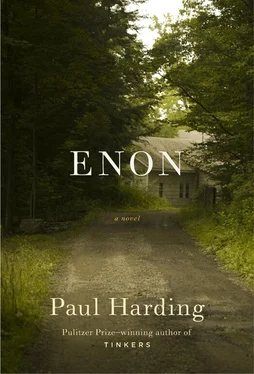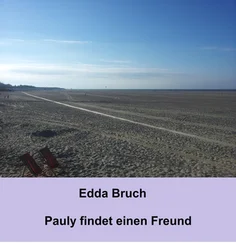Understanding that my woes were minuscule compared with the sum of the universe did not prevent them from devastating me. I knew that the anguish I experienced was presumptuous, that I pretended to absolute tragedy. If I claimed I was too weak to bear my daughter’s death, didn’t that mean I really had the strength? My persistence in feeling that Kate’s death was the end of the world was an embarrassment, because I knew of people who had suffered the deaths of children from suicide and gunshots and falling from windows, the deaths of siblings to drowning and avalanche, the deaths of friends and lovers and spouses to fever, to falling, to ice, and to fire. I could have bought a plane ticket or rented a car or hopped on a bicycle or in some cases walked to those people’s houses, knocked on their doors, sat in their living rooms, drank coffee, and talked with them about the override proposition or their vacation to Portugal and they would have done what people have always miraculously managed to do, which is carry on when there are so very many reasons why doing so should be impossible. I had a deep and abiding love for the idea that this life is not something that we are forced to endure but rather something in which we are blessed to be allowed to participate. But I felt no gratitude whatsoever for, and no relief from, the pain I experienced every waking moment, and this life felt like nothing more than a distillation of sorrow and anger. Even after Kate’s death, when my prior, occasional despair became general, I still believed that giving in to it was a failure of character.
And yet. Wouldn’t my sorrows have been the greater if Kate had never been at all? Wouldn’t they? Wasn’t it the case that her short and happy life was the greatest joy in my own? Wasn’t the joy of those thirteen years its own realm, encased now in sorrow but not breached by it? That is what I told myself. The joy of those years had its own integrity, and Kate existed within that. She could not be touched by the misery caused by her own death. Sometimes I had the sense of her watching me and smiling because she saw me in my sorrow and anger and understood that it was a natural part of the comic tragedy of this life. I hoped that the reason she no longer felt sorrow or anger was not because she was inhuman but because she was now wholly human, even if I, yoked to this life, still had to suffer the joy of my life with Kate, unbreachable as it might be, in stark and ruinous contradiction to my life without her. That joy was the measure and source of my grief.
I REMEMBER SITTING AT our dining room table late one spring afternoon, with rain and wind blustering around in the side yard and through the maple trees. Susan was in the kitchen, finishing some schoolwork, while Kate and I played a board game called Sorry! at the end of the table nearest the windows. The rest of the table was piled with clean laundry that needed folding. Kate drew from the deck of cards placed on the middle of the board.
“Eight,” she said. She tapped one of her playing pieces along, counting, “One, two, three …”
I drew a card.
“Move backward four,” I said.
Kate said, “Sorry, Dad.”
“That’s half the fun, kiddo.”
“Dad, who’s my grandmother?” she asked.
“She was Grandma Crosby,” I said.
“So who’s my great-grandmother?”
“Nanny Crosby.”
“I never met her.”
“Yes, you did, but you were a real little kid, almost just a baby.”
“Who’s my great-great-grandmother?”
“Grammy Black, whose name, in fact, was Kathleen, which is kind of like Katherine, but we didn’t name you after her.”
“Why not?”
“Well, because she was what your Grampy Crosby used to call a pisser . She was a grump who lived in her bathrobe and bossed everyone around and complained all the time.”
“Who’s my great-great-great-grandmother?”
“I don’t know that far back.”
“Who’s my great-great-great-great-great-great-great-grandmother?”
“Take your turn, wise guy.”
“Okay, wise guy.” Kate took another card and tapped out the spaces.
“Hey, you and I need to go to the garden store and get some red geraniums and go to the cemetery where Nanny and Grampy Crosby and Grandma Crosby and even Grammy Black are all buried and plant them in front of their stones, to make them look nice for Memorial Day. You know geraniums; you’ve seen them the times we’ve gone to the Memorial Day parade and stood near where everyone’s buried while they talk and when they shoot the guns.”
“And all the Cub Scouts run for the bullet shells.”
The next Saturday the weather was mild and bright. Susan went out on the side porch and tipped the rainwater out of the seat of one of the plastic chairs and wiped it dry with a dish towel. She took her coffee and a stack of papers to correct and sat out in the sun. I dug up a couple of trowels from the mess in the garage and tossed them in the foot well on the passenger side of the station wagon. The wagon was the last my grandfather had bought before he died. It was rusted and decrepit but I had a great loyalty to it, an unabashed sentimentality about having ridden around in it with my grandparents before I had become a husband and a father. It was white and had a broken deck for cassette tapes and electric windows that worked only half the time and less than that in cold weather. The tires were bald and the chassis shook so violently when the car idled that it sounded as if the entire exhaust system were about to drop out of the bottom of the car. I felt like a bad parent every time I drove Kate around, but I also had a sincere if wholly unfounded faith that the car was charmed and that Kate would never come to any harm in it.
I said to Susan, “Kate and I are going to go get flowers and plant them at the cemetery.”
“Okay, babe. Say hi to everyone for me,” she said.
“Fun ny ,” I said.
Kate and I bought a tray of six red geranium plants at the garden center, then drove to the cemetery and yanked up the old plants from the previous year. Kate took the job seriously, telling me to make sure that we lined up the rows of holes for the new plants and spaced them evenly in front of the stone so that they would look neat. She pulled one of the plants from its pot and held it in front of her nose. She sniffed at the flowers, then at the root bundle and soil.
“Smell nice?” I asked.
“Kind of,” she said. “I like the way the dirt smells better than the flowers, I think.”
“It’s the leaves that smell so strong. Cool how the roots stay in the shape of the pot, huh?” I said. “That makes it easy; you can just stick the whole thing right into the hole you made.”
When we had planted all the flowers, I said, “We have to water them now. See up the hill there, the spigot — that pipe with the faucet like the one for the garden hose at home? There’s a plastic milk jug by it. Do you want to go fill it up with water and bring it back down so we can water the flowers? Think you can?”
“Yeah, I can do it,” Kate said. She started to march up the hill, zigzagging in between the headstones. She sang a song to herself that I didn’t recognize. As she made her way up the hill, her singing became fainter and I could hear only intermittent notes carried back down on the breeze. The farther up the hill she went, the more the headstones in between us obscured her. I had a sudden impulse to follow her. The way the headstones looked — almost like walls made of alternating granite and marble and slate shingles — it seemed as if she might lose her way among them, as if they were arranged in narrow rows without exits or with dead ends, as if she were walking through a maze suddenly.
“You see it, sweetie?” I called up. She turned around toward me. “You see it ?” I called up again, louder. She took a step back toward me. I waved her back.
Читать дальше












